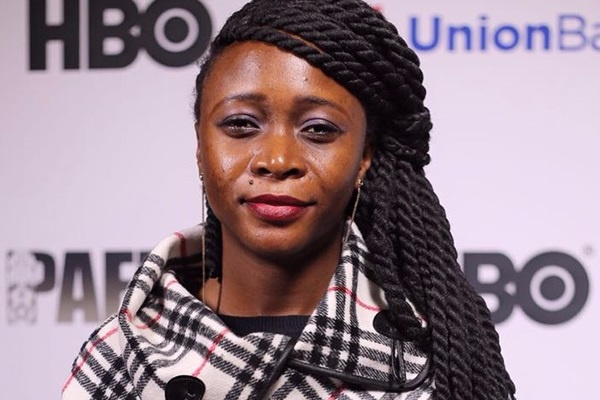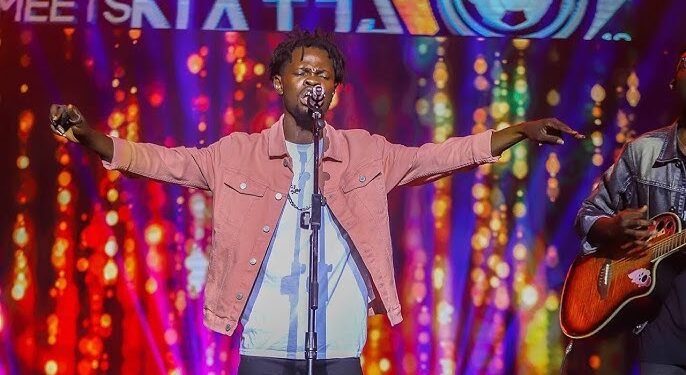In a world saturated with social media influencers and viral content creators, storytelling has become commodified and is often mistaken for a pursuit of fame.
Yet, at its core, storytelling is a profound service transcending the superficial glitter of recognition. It is a medium through which experiences are shared, emotions evoked, and understanding among diverse communities is fostered.
Ghanaian-American filmmaker Leila Djansi has stated that Ghanaian storytellers need to focus more on their audience, stay humble, and remember that storytelling is about service, not fame.
Her comments come after her colleague Shirley Frimpong-Manso expressed frustration. Shirley expressed disappointment about how Ghanaians seem more excited about American filmmaker Tyler Perry’s new movie ‘Straw’ than local movies.
Shirley’s comment sparked mixed reactions online, with some agreeing and others saying the comparison was unfair.
Speaking on this, Leila Djansi reminded filmmakers that support doesn’t come overnight and used Tyler Perry as an example.
“Let’s get one thing straight. Tyler Perry did not wake up one morning to that level of support. I used to attend his plays in Georgia. That man built his audience from the ground up. He carried his entire community with him… He never served Hollywood. He served his audience.”
Leila Djansi
Leila believes Ghanaian storytellers can do the same if they focus more on the people they are making stories for.

She also pointed out that many people operate in cliques and often support only those in their inner circle. This, she said, makes it hard for the industry to grow as a whole.
Stories have been the bedrock of human connection since time immemorial. They weave the fabric of communities, allowing individuals to share their experiences, struggles, and triumphs.
When storytellers prioritize service, they create narratives that resonate with their audience, fostering a sense of belonging and shared identity.
For instance, oral traditions among Indigenous peoples serve not only as a means of entertainment but also as a way to pass down knowledge, values, and history.
These stories are not told for personal glory; they are shared to ensure that the community’s heritage and wisdom endure through generations.
In contemporary society, community-oriented storytelling is observed in initiatives like local storytelling festivals or community theater projects.
These platforms provide a space for voices that might otherwise go unheard, allowing participants to share their lived experiences. By prioritizing the collective over the individual, storytellers contribute to a more cohesive and empathetic society.
Storytellers Fostering Empathy Through Narrative

The crucial aspect of storytelling as a service is its unparalleled ability to foster empathy. When a story is told, audiences step into another person’s shoes, experience their joys, fears, and challenges.
This empathetic engagement is essential in a world often divided by differences. For example, authors like Chimamanda Ngozi Adichie emphasize the importance of diverse narratives in her TED Talk, “The Danger of a Single Story.”
She illustrates how hearing only one perspective leads to stereotypes and misunderstandings. By sharing multifaceted stories, it dismantles preconceived notions and cultivates a deeper understanding of one another.
Moreover, storytelling serves therapeutic purposes, helping individuals process trauma and find solace in shared experiences. Initiatives such as storytelling workshops in hospitals or support groups demonstrate how narratives facilitate healing.
Here, the storyteller’s role is not to gain fame but to serve as a conduit for healing and connection, reinforcing the idea that the true power of storytelling lies in its ability to connect and uplift others.
Leila concluded her post with a critique of what she views as the toxic culture among some industry players and called for a shift in mindset
“Being a storyteller is about service. Not fame. That gift is God’s gift. Use it to serve his earth. It’s not about you!”
Leila Djansi

Cultural preservation is a vital function of storytelling that underscores its service-oriented nature. As globalization threatens to homogenize cultures, storytellers play a crucial role in safeguarding unique traditions, languages, and histories.
Through their narratives, they ensure that the rich tapestry of human experience is not lost but celebrated. For example, the work of organizations dedicated to documenting and sharing the stories of marginalized communities highlights how storytelling serves as an act of resistance against cultural erasure.
While the pursuit of fame is a tempting aspect of storytelling in the modern age, it is essential to recognize that the true essence of this art form lies in its capacity to serve.
By prioritizing community building, fostering empathy, and preserving cultural heritage, storytellers fulfill a vital role in society.
Their narratives have the power to connect, heal, and inspire, reminding the audience that the most profound impact is often measured not by accolades but by the lives they touch and the stories they help to share.
Ultimately, being a storyteller is about service, and in that service, individuals find the heart of what it means to be human.
READ ALSO: NPP’s Flagbearer-First Approach Threatens Internal Unity– Dr. Asekere























